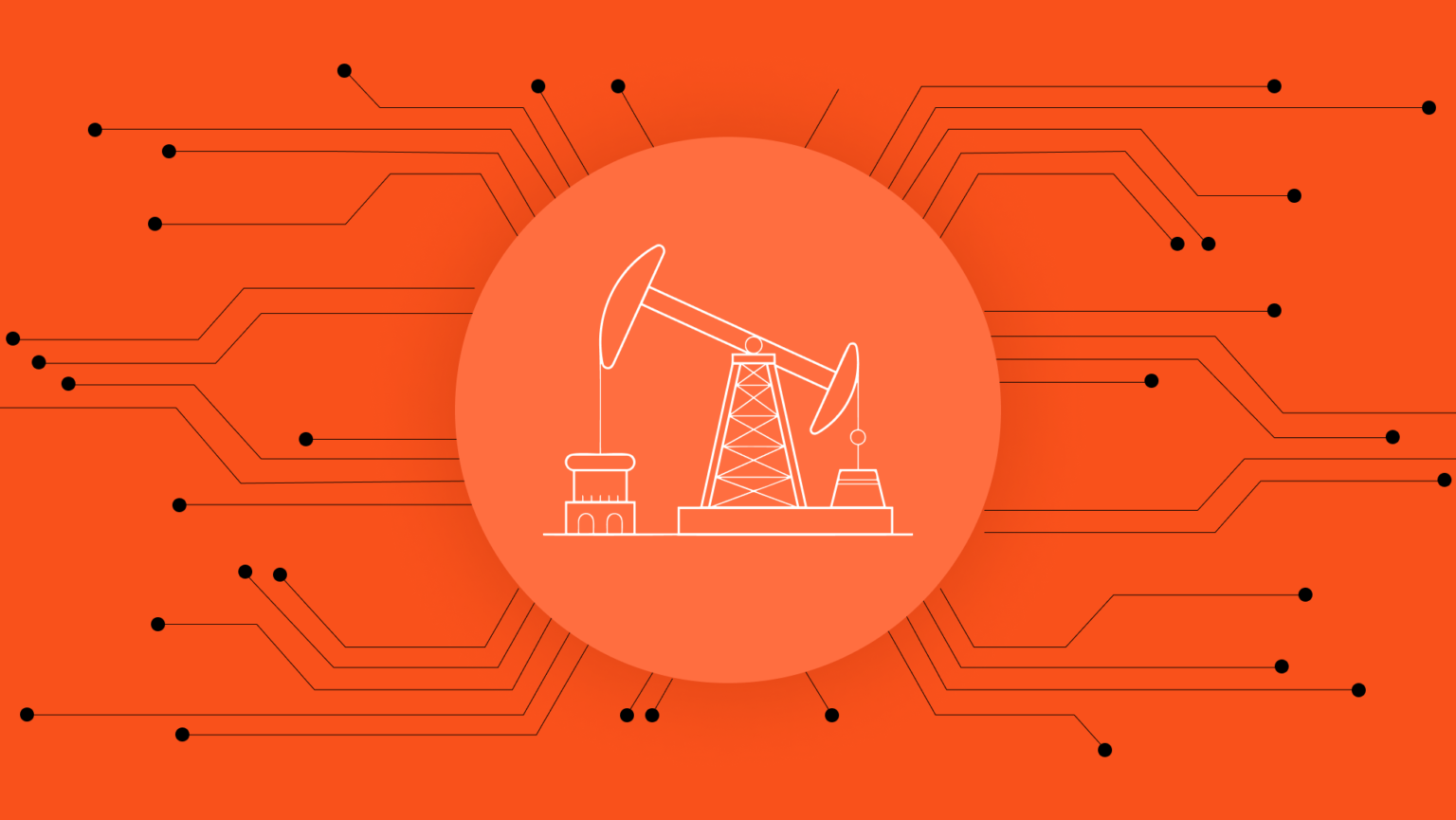Kuwait has long stood as one of the global leaders in oil and gas production, a sector that drives not only its national economy but also plays a major role in shaping the energy landscape of the Middle East. For decades, the oil and gas industry has depended on traditional systems of management, reporting, and distribution. However, as global markets become increasingly digitized and complex, the call for advanced, transparent, and efficient technologies is stronger than ever. Blockchain technology has emerged as a solution that can transform industries, and its application in Kuwait’s oil and gas sector holds immense promise. By providing secure, transparent, and decentralized platforms for data management and transactions, blockchain can reshape the way this critical industry operates.
This article explores in depth how blockchain can be applied in Kuwait’s oil and gas industry, what benefits it brings, what challenges it addresses, and why it is a positive game-changer for the country’s future energy management.
Understanding Blockchain and Its Potential
At its core, blockchain is a decentralized digital ledger system that records transactions securely across multiple computers. Each transaction is recorded in a “block” and linked to the previous one, creating a secure “chain.” This technology ensures that data cannot be easily tampered with or altered, making it highly reliable. In the context of Kuwait’s oil and gas industry, blockchain offers transparency, speed, and accuracy in managing vast amounts of data, financial transactions, and supply chain processes.
Kuwait’s oil and gas sector faces challenges such as fluctuating oil prices, operational inefficiencies, and increasing global demand for transparency in energy practices. Blockchain provides a solution that not only addresses these challenges but also prepares the industry for the demands of the future.
Enhancing Transparency in Supply Chain
The oil and gas industry relies heavily on a global supply chain, from drilling and extraction to refining and delivery. Traditional supply chains often suffer from delays, miscommunication, and inefficiencies that lead to increased costs and reduced trust among stakeholders.
Blockchain can simplify supply chain management by offering real-time tracking of oil and gas products, recording every stage of the journey in a secure and transparent ledger. For Kuwait, this means being able to monitor the movement of crude oil and refined products from production facilities to international buyers without ambiguity. Buyers, suppliers, and regulators can all access a single, tamper-proof source of truth. This enhances trust, reduces disputes, and ensures efficiency in global energy trade.

Reducing Fraud and Errors
Fraud and data manipulation have long been concerns in the oil and gas sector. Contracts, shipping documents, and invoices often pass through several hands, creating opportunities for mistakes or intentional tampering. Blockchain eliminates this risk by making every transaction visible and verifiable to all authorized parties.
For Kuwait, this means contracts with international buyers, shipping companies, and logistics providers can be stored on blockchain platforms, reducing the possibility of disputes. Smart contracts self-executing contracts with coded rules ensure that payments and deliveries are carried out exactly as agreed. This reduces the burden of legal disputes and financial losses.
Streamlining Financial Transactions
The oil and gas industry involves large-scale financial transactions across international borders. Traditional banking systems can be slow, expensive, and subject to regulatory complexities. Blockchain simplifies this process by allowing secure and almost instantaneous transactions through digital ledgers.
In Kuwait, blockchain can revolutionize the way payments are made between oil producers, refiners, and buyers. The technology can reduce transaction costs, ensure faster settlements, and eliminate reliance on multiple intermediaries. This not only saves money but also improves the speed of global energy trade.
Improving Regulatory Compliance
Kuwait’s oil and gas industry is heavily regulated, both locally and internationally. Ensuring compliance with environmental standards, trade agreements, and safety protocols can be time-consuming and complex. Blockchain can simplify compliance by recording all relevant data on a secure ledger that regulators can access in real time.
For instance, emission reports, safety checks, and environmental audits can all be stored on blockchain. This ensures that Kuwait’s oil companies meet international sustainability requirements while maintaining full transparency. It also strengthens the country’s reputation as a responsible global energy leader.

Driving Operational Efficiency
Efficiency is critical in oil and gas operations, where every delay or error can translate into massive financial losses. Blockchain enables automation of many processes through smart contracts, which reduces manual work and human errors.
For Kuwait, this means drilling operations, equipment maintenance schedules, and production targets can be tracked and executed with higher accuracy. Automated systems reduce paperwork, save time, and improve coordination among different departments. This translates into significant cost savings for the industry.
Enhancing Energy Trading Platforms
Energy trading is a vital aspect of Kuwait’s economy, as the country exports large volumes of crude oil and petroleum products. Traditional trading platforms often face issues such as delays in settlement, disputes, and lack of transparency. Blockchain-powered trading platforms solve these issues by offering secure, transparent, and fast trading systems.
With blockchain, Kuwaiti companies can trade oil and gas with international buyers on platforms that record every detail of the transaction in real time. This improves trust between Kuwait and its trading partners while ensuring faster and more efficient deals.
Promoting Sustainability and Green Practices
As the world shifts toward sustainability, Kuwait’s oil and gas industry must adapt to new environmental standards. Blockchain can support sustainability efforts by providing detailed tracking of carbon emissions, energy consumption, and waste management.
For example, oil companies in Kuwait can use blockchain to record and verify reductions in carbon emissions, making it easier to prove their commitment to global climate goals. Transparent reporting builds trust with international partners and enhances Kuwait’s reputation as a nation embracing clean energy initiatives.

Securing Data and Cybersecurity
In today’s digital world, data security is a critical concern for every industry, especially one as vital as oil and gas. Cyberattacks can disrupt production, damage reputations, and cause financial losses. Blockchain’s decentralized nature makes it extremely secure against hacking attempts, as data is stored across multiple nodes rather than a single vulnerable system.
For Kuwait, adopting blockchain strengthens the security of sensitive operational data, trade documents, and financial records. It creates a safer environment for both domestic and international stakeholders.
Supporting Workforce and Training
Introducing blockchain into Kuwait’s oil and gas industry is not only about technology it also involves people. Training the workforce to understand and manage blockchain systems is essential. By doing so, Kuwait can empower its engineers, data specialists, and managers to operate in a more technologically advanced environment.
This training also provides young professionals in Kuwait with skills that are highly valued in the global market, helping the country strengthen its human capital and open up new opportunities for its workforce.
Overcoming Challenges
While blockchain offers enormous potential, it is not without challenges. Implementation requires significant investment in technology, infrastructure, and training. Resistance to change within organizations can also slow adoption. Furthermore, global standardization of blockchain systems in oil and gas is still in progress.
For Kuwait, overcoming these challenges will require strong collaboration between government bodies, oil companies, and technology providers. Clear policies, pilot projects, and phased implementation can help the country gradually build a robust blockchain ecosystem for its oil and gas sector.
Future Vision for Kuwait’s Oil and Gas Industry
Looking ahead, blockchain has the potential to completely transform the way Kuwait’s oil and gas industry functions. From transparent supply chains to sustainable energy practices, the applications are vast and promising. By embracing this technology, Kuwait not only secures its position as a global leader in energy but also demonstrates its readiness to adapt to the digital future.
The government’s push for modernization and diversification of the economy aligns perfectly with blockchain adoption. As Kuwait works to balance its reliance on oil with the need for innovation, blockchain becomes a tool of empowerment, efficiency, and trust.
Conclusion
Blockchain is more than just a technological innovation it is a catalyst for positive change in Kuwait’s oil and gas industry. By embracing blockchain, Kuwait can enhance transparency, reduce fraud, streamline operations, and build stronger trust with international partners. It enables the country to remain competitive in an evolving global energy market while supporting sustainability and modernization.
The journey may require effort, investment, and adaptation, but the rewards are profound. For Kuwait, blockchain represents not just a step forward but a leap into a future where its oil and gas sector is more efficient, secure, and respected on the world stage. The country’s adoption of blockchain is not only about staying relevant it is about leading the way in innovation and shaping the future of global energy.
Also Read- Transforming Kuwait Living with Smart IoT Home Innovations



